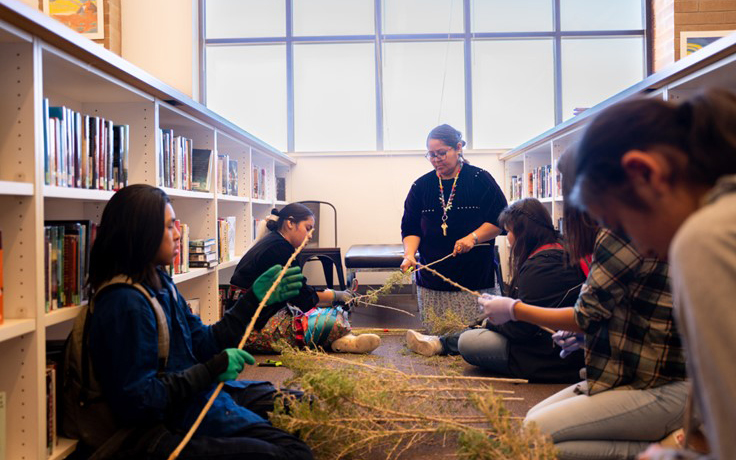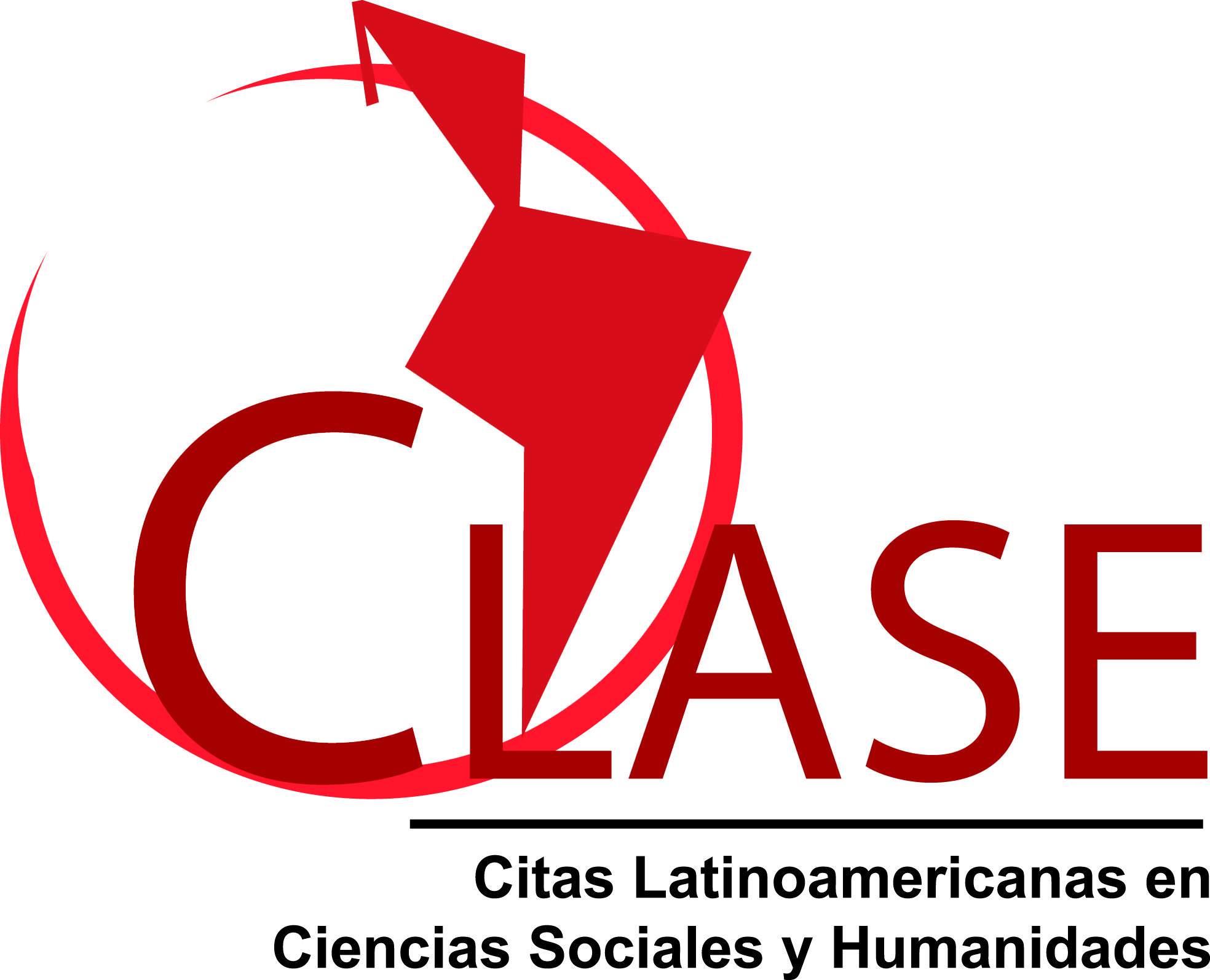Community knowledge in indigenous education from the Mexican regulatory framework
DOI:
https://doi.org/10.29059/rdycsv.v7i1.209Keywords:
Education, principle of educational law, human rightsAbstract
This written work is the result of a documentary exploration and is combined with the experiences of students from different educational programs, analyzed from a qualitative perspective, with the objective of analyzing the concept of education that the state has been offering to citizens, this from the principles of educational law, where it must be recognized that it is a human right that every person must enjoy regardless of social or cultural status; Legal norms at the national level regarding education and authors relevant to the right to education in indigenous contexts were reviewed. The results allow us to visualize the inequalities in education and the multiple oppressions that indigenous peoples face in professional training and access to educational rights as a human right. In conclusion, one can understand the importance of making use of the educational right as an essential part that every person must exercise as a universal right that guarantees the academic training of an entire population, regardless of the social context.
References
Bolívar Osuna, L. (2010). El derecho a la educación. Revista IIDH. (52), 191-212. https://repositorio.iidh.ed.cr/items/c10539a1-1f73-47ef-909ef76c23e8c1fa
Camacho López, M.; Gómez Téllez, A. O. y Castillejos Hernández, M. D. G. (2019). Derecho educativo y formación ciudadana universitaria en México. En Duso Pacheco L. M. y Villafuerte Vega A. (Eds.), Derecho Educativo: Reflexiones sobre la Cultura de Paz en un contexto Globalizado (295-312). Editorial Isolma San José Costa Rica.
Constitución Política de los Estados Unidos Mexicanos, (2024), Constitución publicada en el Diario Oficial de la Federación el 5 de febrero de 1917, Última Reforma DOF 15-09-2024 chrome-extension://efaidnbmnnnibpcajpcglclefindmkaj/https://www.diputados.gob.mx/LeyesBiblio/pdf/CPEUM.pdf
Duque, G., (2014). El ejercicio del pluralismo jurídico, frente a la prevalencia del derecho a la integri dad personal, constante en el numeral 3 del art. 66 de la Constitución de la República del Ecua dor. Quito. [Tesis para la obtención de título de abogado, Universidad Central del Ecuador]. Repositorio institucional Universidad Central del Ecuador. https://www.dspace.uce.edu.ec/server/api/core/bitstreams/78fc02b8-915a-4b11-aac74c55888a216e/content
Horbath, J. E. y Gracia, M. A. (2016). El derecho a la edu cación: un análisis a partir de la política educativa de las dos últimas décadas en México. Revista de Relaciones Internacionales, Estrategia y Seguridad, 11(1), 171-191. https://www.redalyc.org/articulo.oa?id=927/92743369009 DOI: https://doi.org/10.18359/ries.1373
León, A. (2007). Qué es la educación. Educere. 11 (39), 595-604. https://www.redalyc.org/pdf/356/35603903.pdf
Ley General de Educación, (2024). Nueva Ley publicada en el Diario Oficial de la Federación el 30 de septiembre de 2019, Últimas Reforma DOF 07 – 06 – 2024. https://www.diputados.gob.mx/LeyesBiblio/pdf/LGE.pdf
Naciones Unidas (2008). Declaración de las Naciones Unidas Sobre los Derechos de los Pueblos Indígenas https://www.un.org/esa/socdev/unpfii/documents/DRIPS_es.pdf
Naciones Unidas (2024). Declaración Universal de los Derechos Humanos. https://www.cndh.org.mx/derechos-humanos/que-son-los-derechos-humanos#:~:text=Los%20derechos%20humanos%20son%20derechos,derecho%20humanos%2C%20sin%20discriminaci%C3%B3n%20alguna
Organización Internacional del Trabajo [OIT] (2014). Convenio Núm. 169 de la OIT sobre pueblos indíge nas y tribales en países independientes. Declara ción de las Naciones Unidas sobre los Derechos de los Pueblos Indígenas. file:///C:/Users/revis/Downloads/wcms_345065.pdf
Pérez Vázquez, S. (2022, 12, 10), La educación comunitaria como un derecho humano, ponencia virtual, en el IX Congreso Internacional de Investigación en Derecho y I Congreso Nacional en Perú, CUSCO 2022 p.302, Reserva de Derechos al Uso Exclusivo No. 04-2018-101710464400-203, ISSN:2448-511X, URL http://congresoderechoeducativo.unach.mx/images/PERU/Memoria_Peru-22.pdf
Rivera Muñoz, J. L. (2004). El aprendizaje significativo y la evaluación de los aprendizajes. Revista de Investigación Educativa, 8(14), 47-52. https://revistasinvestigacion.unmsm.edu.pe/index.php/educa/article/view/7098/622
Úcar Martínez, X. (2020). Principios sociopedagógicos y relaciones socioeducativas. En Del Pozo Serrano, F. J. (Coord). Intervención educativa en contextos sociales: Fundamentos e investigación, estrategias y educación social en el ciclo vital. Universidad del Norte. DOI: https://doi.org/10.2307/j.ctv1cfthrh.4
UNESCO (2003). Declaración Universal sobre la Diversidad Cultural. https://unesdoc.unesco.org/ark:/48223/pf0000127162_spa
UNESCO (2014). Indicadores UNESCO de Cultura para el Desarrollo Manual Metodológico. https://unesdoc.unesco.org/in/documentViewer.xhtml?v=2.1.196&id=p::usmarcdef_0000229609&file=/in/rest/annotationSVC/DownloadWatermarkedAttachment/attach_import_ef4fc3b8-3d05-4882-b35a-8660b9ab5373%3F_%3D229609spa.pdf&locale=es&multi=true&ark=/ark:/48223/pf0000229609/PDF/229609spa.pdf#page=1&zoom=auto,-16,842
Xiublogger (2022), ¿Quién extraña lo que no conoce?. Con X de México. Consultado 01 de noviembre 2023: https://conxdemexico.quora.com/Qui%C3%A9n-extra%C3%B1a-lo-que-no-conoce-Hace-poco-m%C3%A1s-de-5-siglos-los-nativos-en-M%C3%A9xico-dejaron-de-sentir-orgullo-sus-hijos

Published
How to Cite
Issue
Section
License
Copyright (c) 2024 Universidad Autónoma de Tamaulipas

This work is licensed under a Creative Commons Attribution-NonCommercial-ShareAlike 4.0 International License.
Accepted 2024-12-02
Published 2024-12-06







